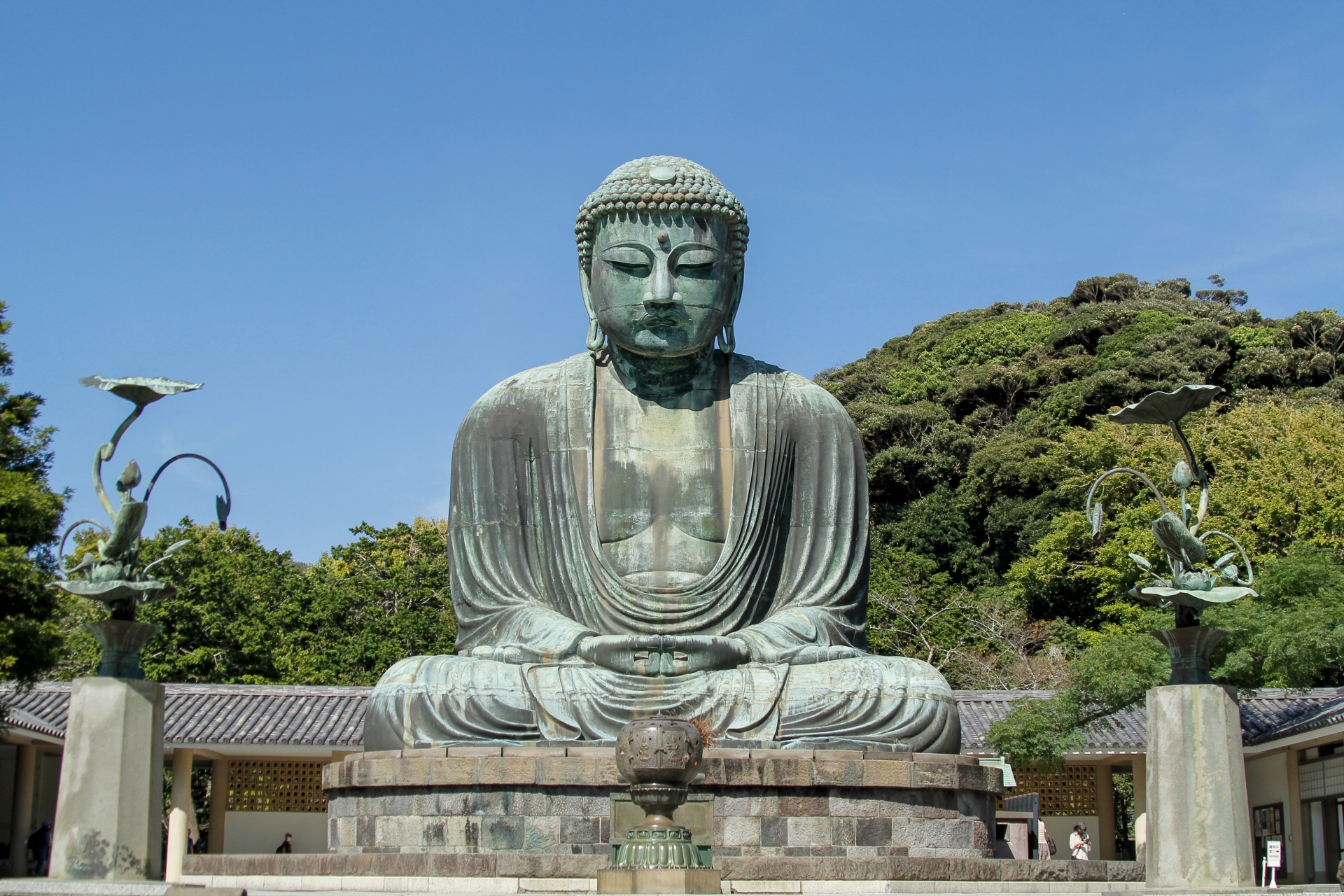
Miho Shimizu is a Japanese freelance writer settled in Shizuoka with her husband and two rabbits. Fascinated with traveling at the age of 18, she has spent most of her long holidays exploring incredible spots around Japan. She also loves to listen to music, draw, and read novels over a cup of green tea.
This post may contain some affiliate links. When you click through and make a purchase we may receive some commission, at no extra cost to you.
When it comes to religion, Japan is a diverse country where you can find a variety of religious beliefs that vary from region to region. From Shintoism and Buddhism, and some of the world’s largest religions that have made their way to Japan from other countries, many religious beliefs coexist in harmony in this island nation.
Throughout history, these religions have had a significant influence on the way people think, live, and make decisions in their lives. What are the major or minor religions in Japan? How are they different, and what percentage of the Japanese population believes in them? Here are some of the various religions in Japan!
1. Shinto
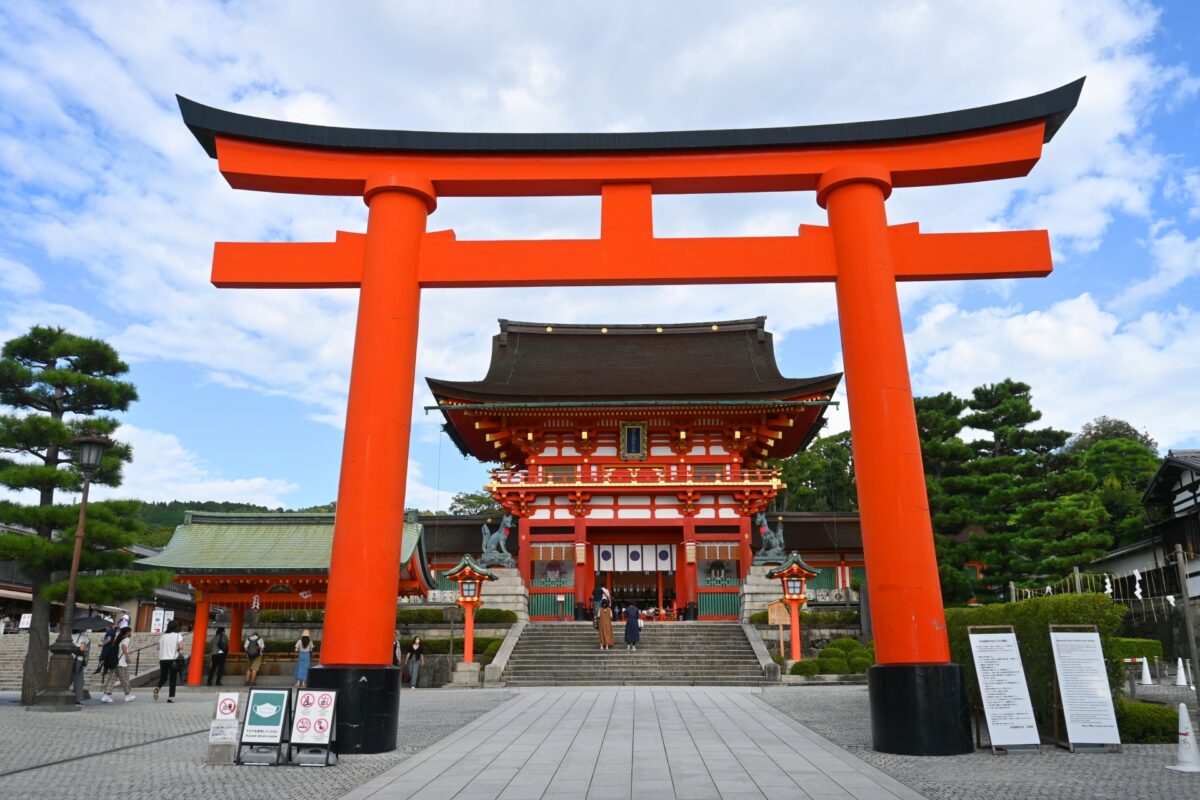
Shinto(神道), is the oldest continuous religion native to Japan. There are several theories among historians regarding when Shinto first appeared in Japanese history. Some believe that the history of Shinto dates back to the Jomon Period, which spans from 13,000 BC to 300 BC.
During the time, ancient Japanese people believed in the existence of the gods in everything, from living creatures to nature, including forests, rivers, and oceans. This religious belief is called “animism,” which is deeply associated with the fundamental principles of Shinto.
Unlike other major religions that have a key central figure, such as Jesus Christ in Christianity and Muhammad in Islam, Shinto doesn’t have a particular deity that is the subject of worship.
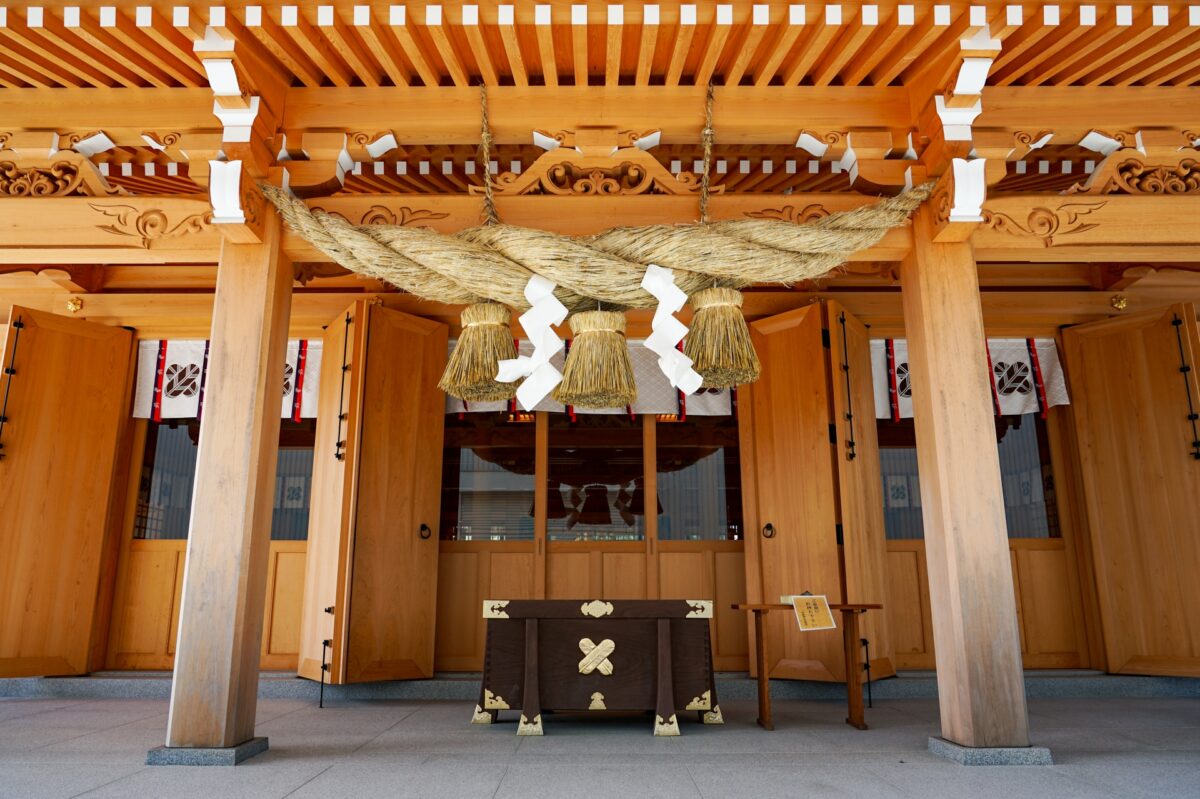
In Shinto, it is believed that there are well over 8 million gods that present themselves in all facets of daily life. Shinto also doesn’t have consistent written scripture or doctrine such as the Bible in Christianity or the Quran in Islam.
Shinto practitioners in Japan are estimated to be almost half of the whole population. This means Shinto has about 80 million followers across Japan, making it one of the largest religious beliefs in the country, along with Buddhism.
The most common way among Japanese people to practice Shinto is by visiting Shinto shrines to pray for gods on special occasions such as festivals and New Year’s Day. On the other hand, many Japanese people don’t see themselves as religious, and they have a flexible attitude toward different types of religious beliefs. Let’s learn about other types of religious beliefs in Japan and figure out why Japanese people call themselves “non-religious”.
2. Buddhism
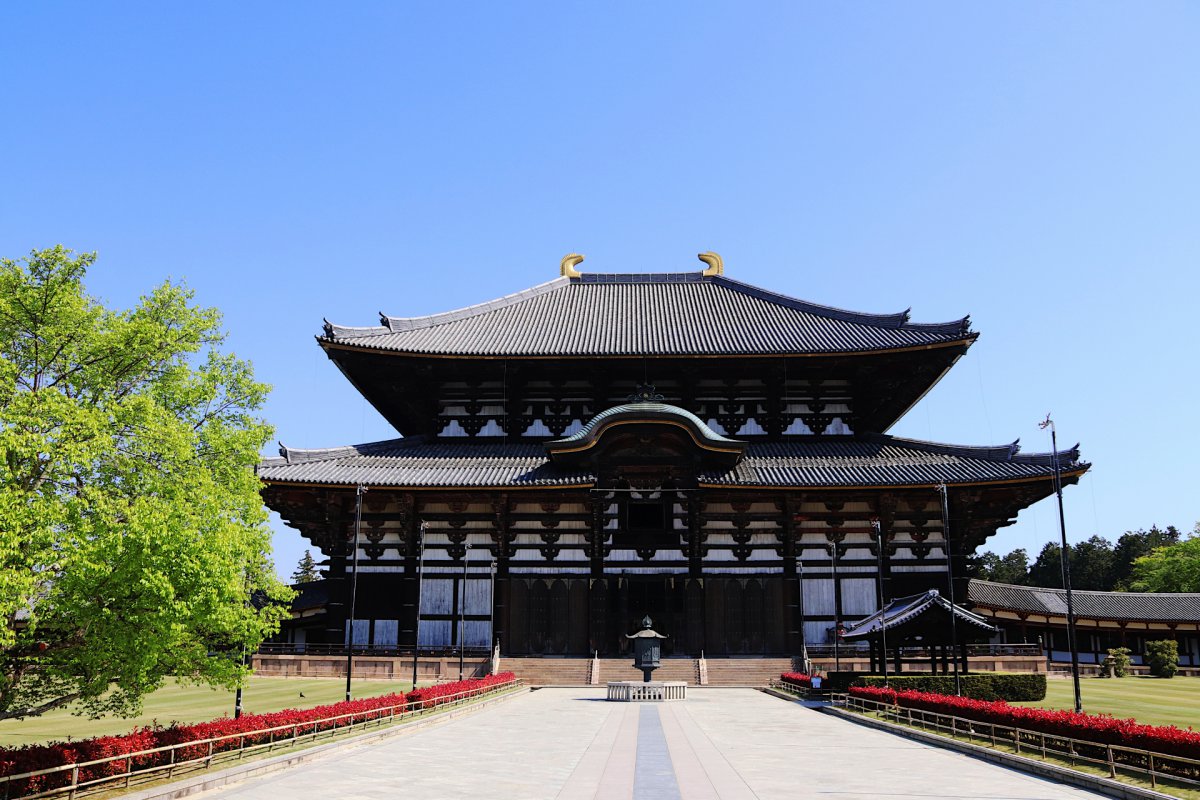
Buddhism has been a big part of Japanese culture and society since ancient times. It was originally brought from China around the 6th century via the Korean Peninsula. At first, there were political conflicts among powerful clans who were concerned about the influence of Buddhism on Japan’s society. Some people accepted and supported Buddhism as a new religious faith, while others were strongly against it.
After the political rows were put aside, however, Buddhism immediately started to spread across the country, along with the establishment of Buddhist temples. It was during the Heian Period (794 – 1192) that Buddhism officially became the national religion of Japan.
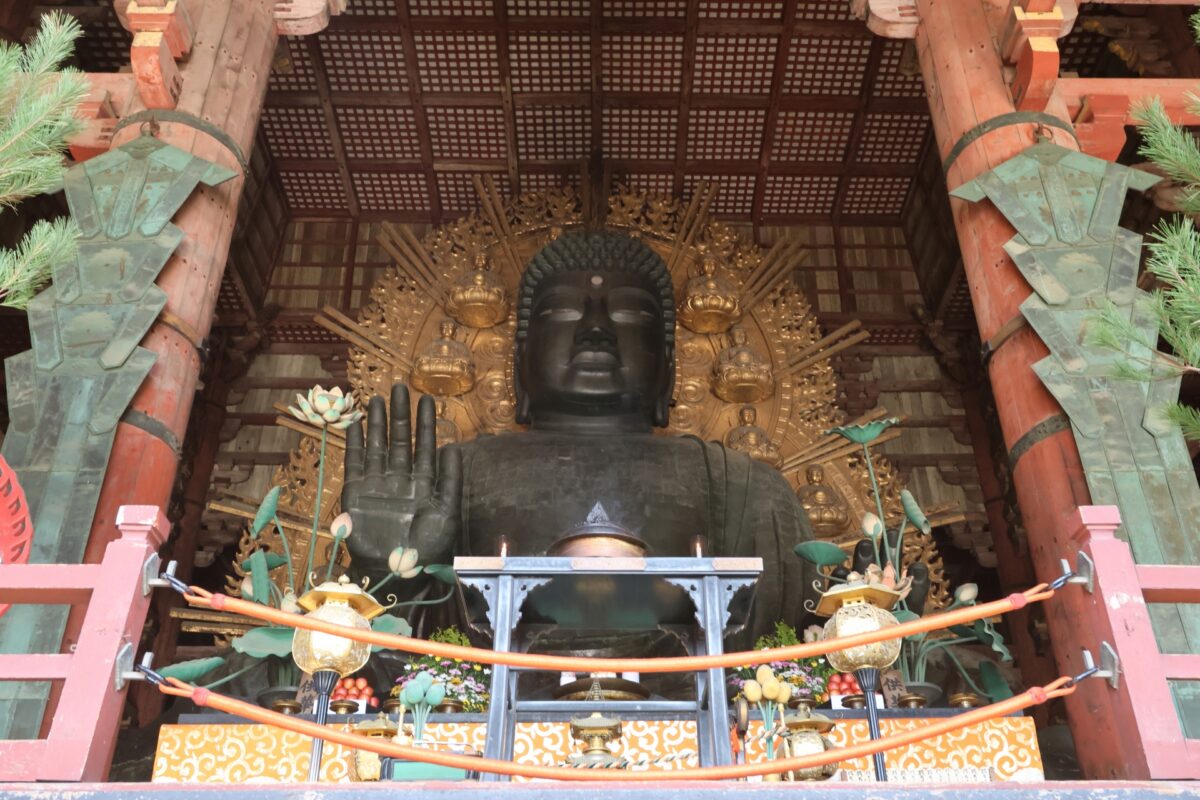
Today, Buddhism is said to make up the almost other half of Japan’s population. This also means that many people practice both Shintoism and Buddhism. From Buddhist alters at home to funerals held in the Buddhist style, we can easily find the influence of Buddhism in everyday life.
Throughout centuries, Buddhism has also been mixed with Shinto in a variety of aspects. This is called “Shinbutsu-Shugo” (神仏習合), the fusion of Shinto and Buddhism. Even today, many Japanese people unconsciously practice both of these religious beliefs.
One example is “Hatsumode” (初詣), the first shrine/temple visit of the year. Shrines are the center of Shintoism, while temples are the holy place of Buddhism for worship. Both sites are considered sacred among Japanese people, and followers of both religions will frequent both.
3. Christianity
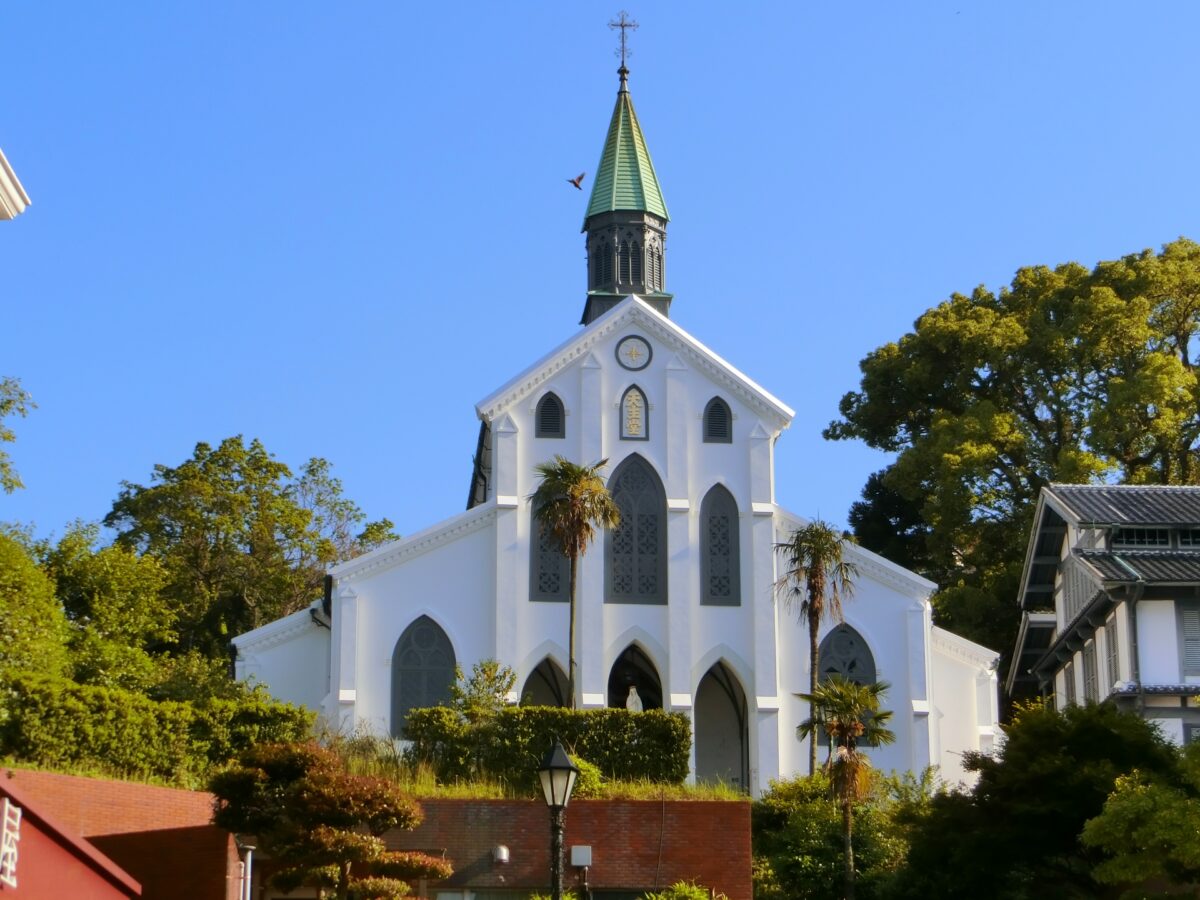
The introduction of Christianity to Japan occurred in 1549 with the arrival of a Catholic missionary known as “Francisco de Xavier.” Originally from Spain, he was sent to Japan in order to spread the faith of Christianity across the country.
He landed on Tanegashima (種子島), a small inhabited island in Kagoshima prefecture, and started his missionary activities in the Kyushu region. Some locals, particularly around Nagasaki prefecture, became passionate Christians and supported his missionary work.
However, during the Edo Period (1603 -1868), Christianity was strictly prohibited by the Tokugawa shogunate because they were afraid that its influence would undermine the authority of the shogunate. It was during the Meiji Period (1868 – 1912) that Christianity was officially legalized by the new government, and people were finally allowed to follow their religious faith freely.
Surprisingly, less than 1% of Japan’s population are Christian. Despite the small number of adherents, there are countless numbers of beautiful churches and cathedrals across Japan. Many people, especially young couples, have started to prefer to hold their wedding ceremonies at churches in a western style rather than in Shinto shrines, regardless of their religious beliefs. Some Christian architecture also retains historical values and is often visited by tourists from around the world as popular tourist attractions.
4. Other religions in Japan
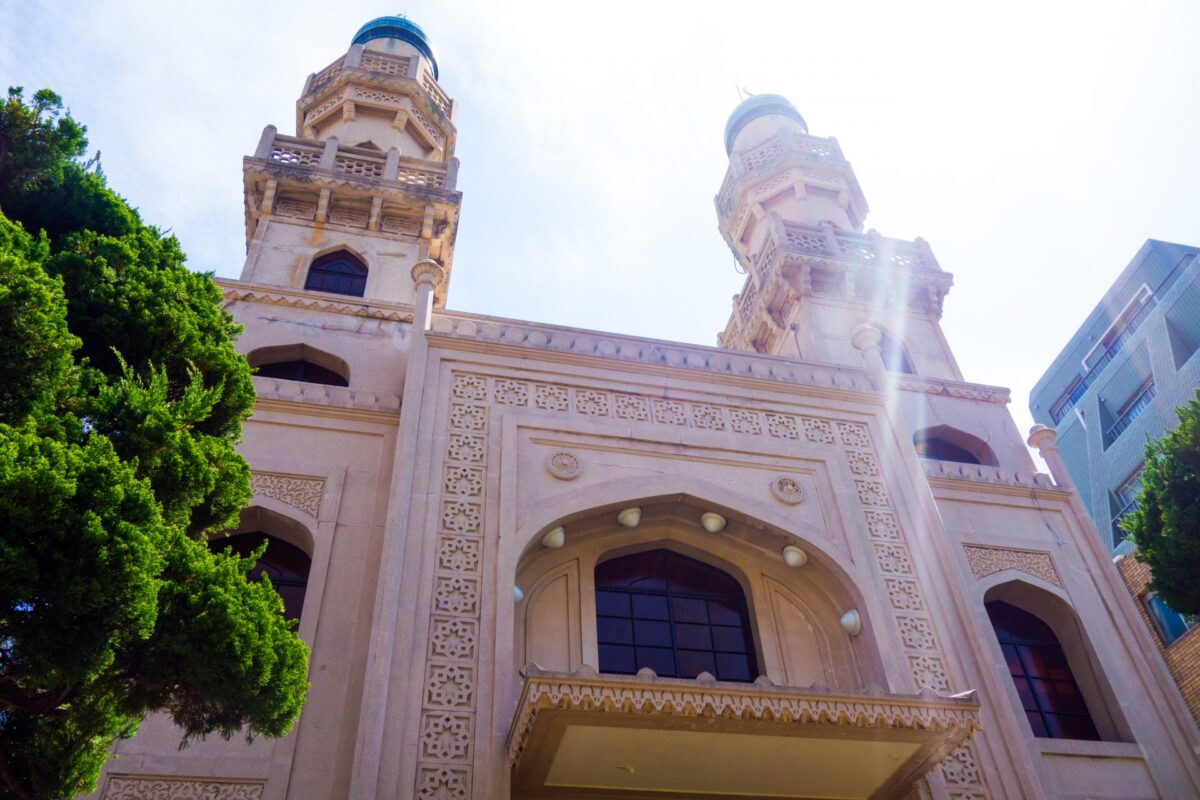
Apart from widely-practiced religions, there are a number of other religious that people believe in in Japan. These religions are said to account for only 3.8% of Japan’s population but still hold a powerful influence across the country with the support of adherents.
Islam
Islam is the world’s second-largest religion, with around 1.8 billion followers globally. There are estimated to be over 200,000 people who belong to Islam in Japan. This number has doubled over the past ten years, and is constantly increasing every year. The majority of Muslims in Japan is made up of immigrants from other countries such as Indonesia, Malaysia, and Turkey.
Bahá’í Faith
The Bahá’í Faith originally derived from Shi’a Islam and is one of the two largest branches of Islam. This religious faith was born and developed in Persia in the 19th century, which is a part of The Islamic Republic of Iran today. The teachings of the Bahá’í were brought to Japan by two American adherents in 1909. Today, there are Bahá’í communities across Japan, and they regularly hold official gatherings for prayer.
Hinduism
Hinduism is the world’s third largest religion which is said to have over 9 billion followers around the world. That being said, Hinduism is regarded as a minority religion in Japan, with a small number of followers who are mostly from India or Nepal. Both Hinduism and Buddhism originated in India, and therefore they have some similarities in common.
Judaism
Judaism has about 2,000 followers in Japan, and most of them are mainly from Israel. The first Jewish people appeared around the 15th – 16th century and settled in Kobe and Nagasaki, which were officially approved by the government as foreign settlements. These cities played an important role as the center of Jewish communities before World War II. There is currently a Jewish Community Center in the Hiroo area, Tokyo, and some other locations around Kobe city in Hyogo prefecture.
Distribution of Belief Trends
As of December 31 2023, the number of believers in Japan is as follows:
| Shinto | 83,371,429 people (48.4%) |
| Buddhist | 81,069,419 people (47.1%) |
| Other | 6,545,257 people (3.8%) |
| Christian | 1,246,742 people (0.7%) |
Source: Agency of Cultural Affair
Since many Japanese people regard themselves as not religious, it might be difficult for foreign tourists to understand how much religions matter in their lives. Japanese people flexibly and naturally incorporate the elements of several religions in their daily lives and peacefully practice the teachings of each religion. Religious diversity in Japan also means there is always a comfortable community for everyone to join, regardless of their religious backgrounds or nationalities. Whether you believe in one of the major religions or minor ones, you will never feel alone in Japan!
Japan Wonder Travel Tours
Japan Wonder Travel is a travel agency that offers guided tours throughout Japan.
From private walking tours to delicious Food and Drink tours, we can help you organize the best tours just for you! If you want to explore Japan and learn more about the history and backstories of each area you are visiting, our knowledgeable and friendly English speaking guides will happily take you to the best spots!
In addition, we can provide you with any assistance you may need for your upcoming trip to Japan, so please feel free to contact us if you have any questions or need some help!
▶Tokyo Tsukiji Fish Market Food and Drink Tour
Explore the most lively and popular fish market in Tokyo and try some of the local’s favorite street foods and sake with one of our friendly and knowledgeable English speaking guides!

▶Tokyo 1–Day Highlights Private Walking Tour (8 Hours)
There’s no better way to explore an area than taking a tour with a knowledgeable local guide. You will have the chance to learn about the history and interesting background stories of Tokyo, as well as discover some hidden gems which can be hard to do without a guide.
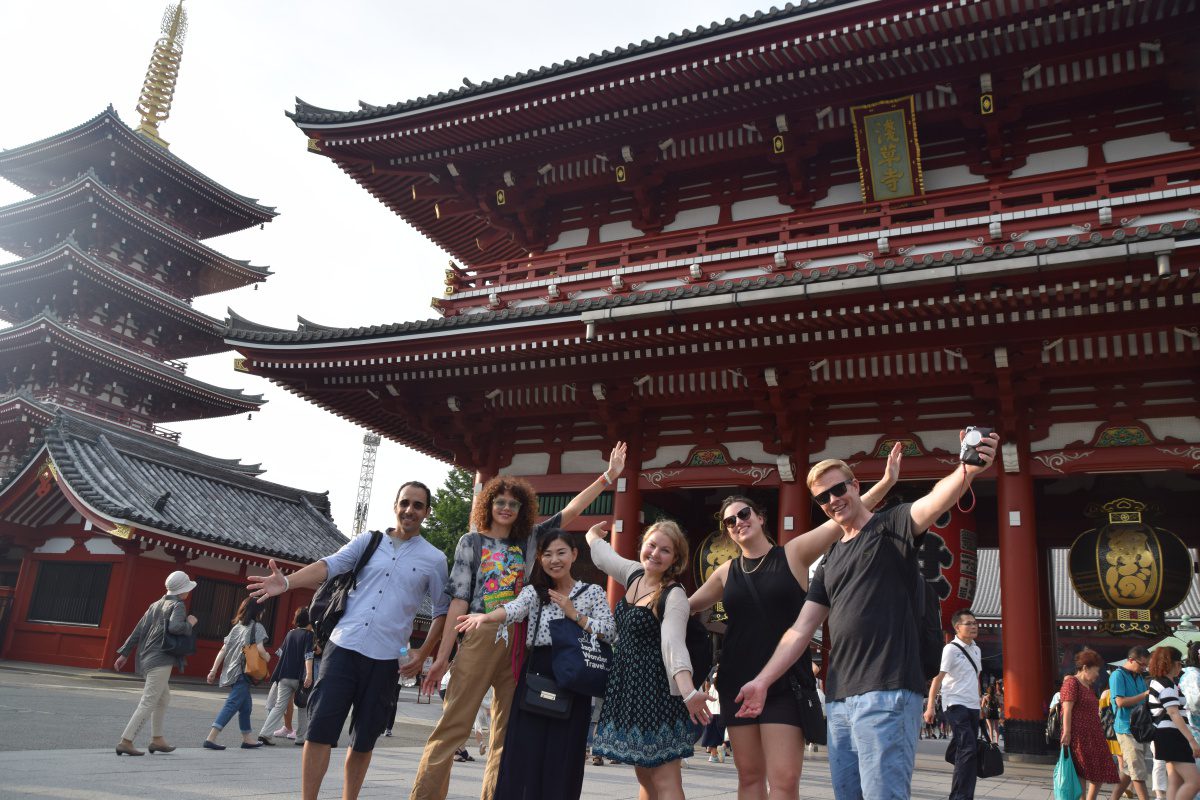
▶Mt. Fuji Day Trip Bus Tour from Tokyo
Experience the breathtaking views of Mt. Fuji by visiting the highlights of the area on our guided sightseeing bus tour! Departing from Shinjuku in central Tokyo, you can travel comfortably to all of the best spots in the area by bus.
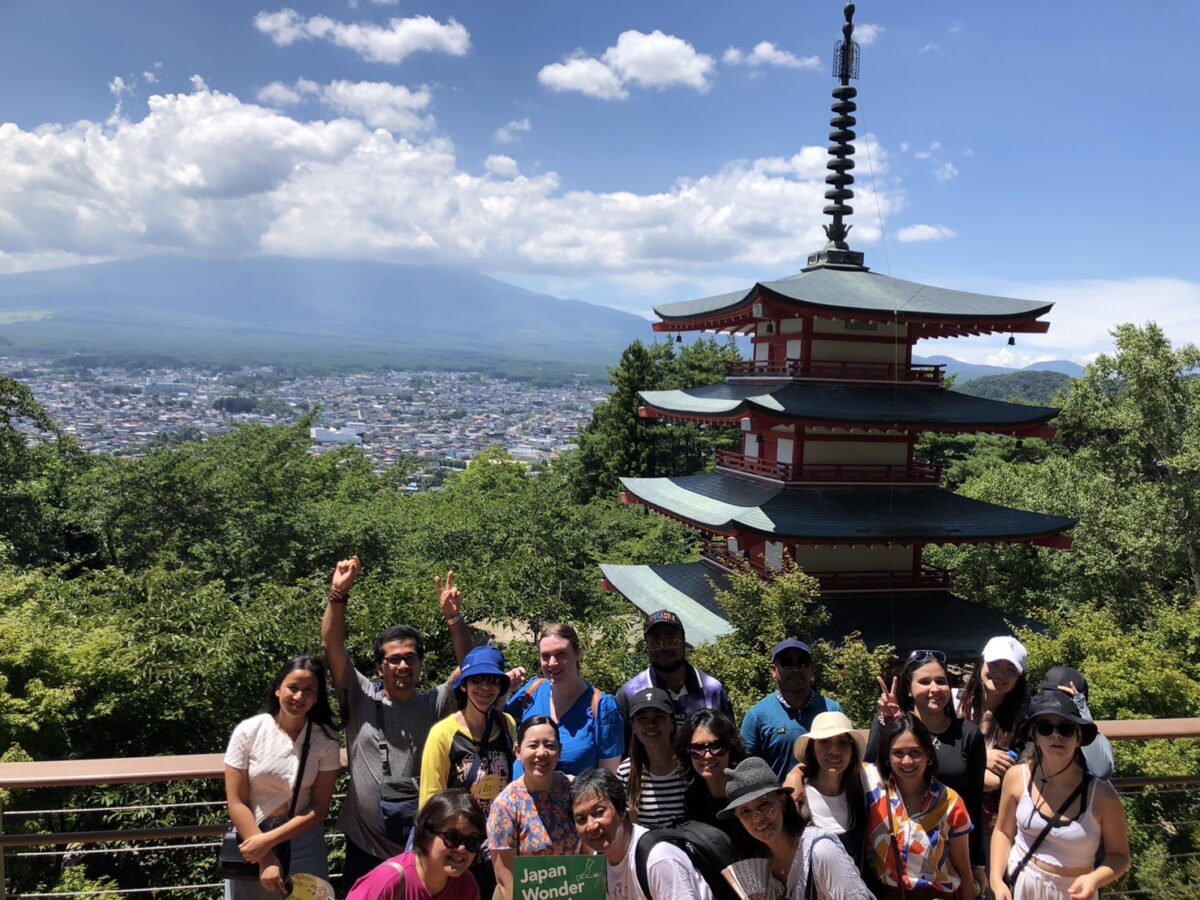
▶Kyoto Private Full Day Walking Tour
On this full-day private tour of Kyoto, you will be able to see the highlights of Kyoto in just one day and at the same time develop a deeper understanding of both the culture of the area and Japan as a whole.
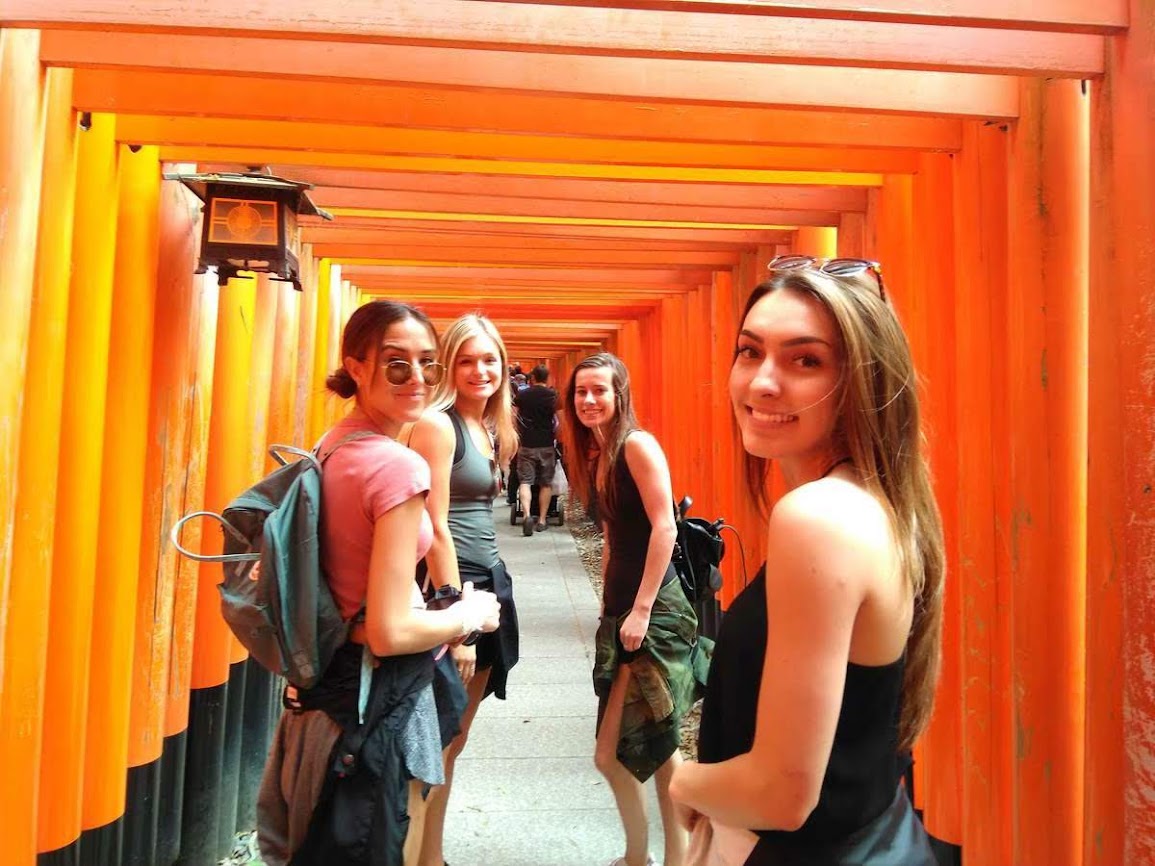
Follow us on Instagram, Facebook, Twitter, and TikTok for more travel inspiration. Or tag us to get featured!
Happy traveling!
